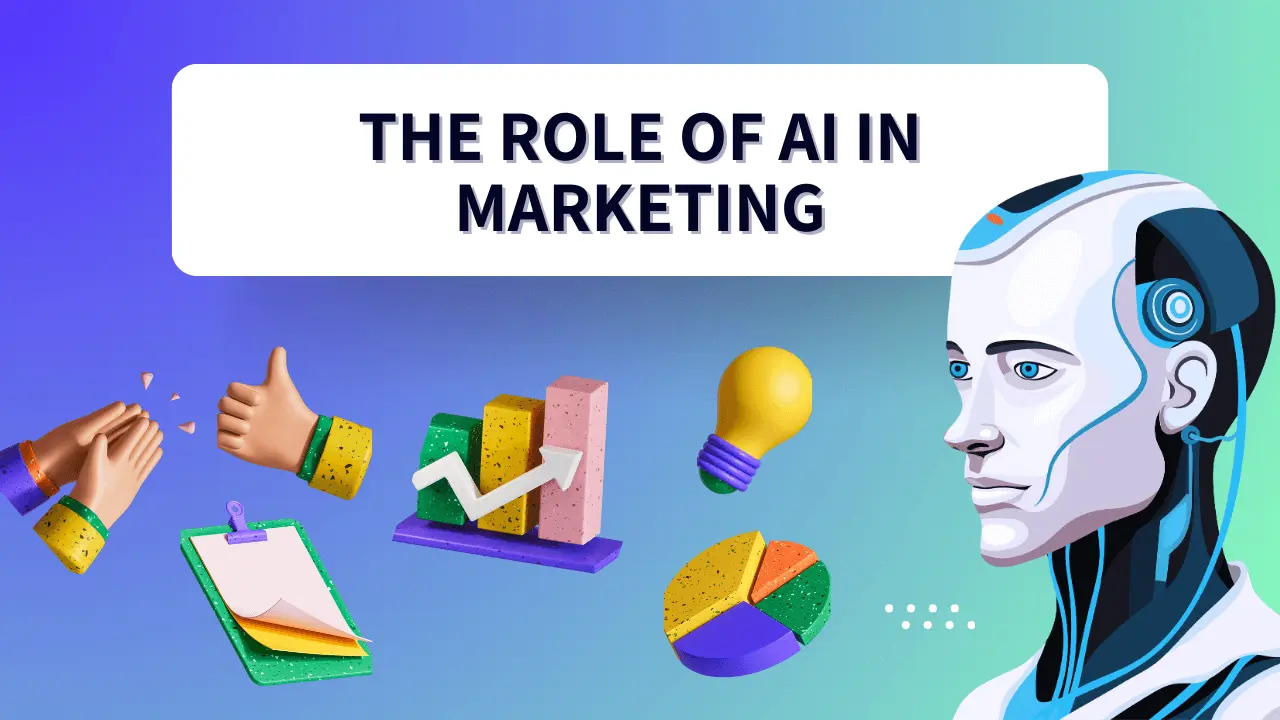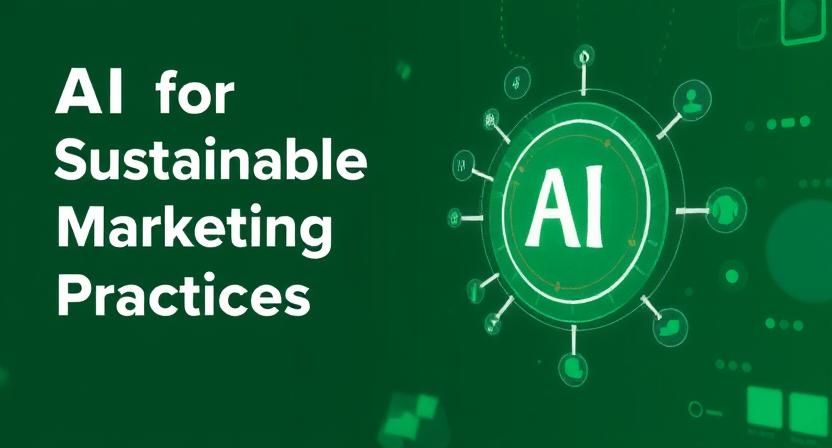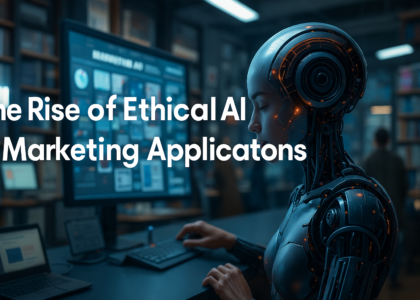Introduction
As global awareness around climate change, resource depletion, and ethical business practices grows, brands are under increasing pressure to operate sustainably. Marketing, as the interface between businesses and consumers, plays a vital role in this transformation. By leveraging Artificial Intelligence (AI), companies can elevate their sustainability initiatives, ensuring that eco-conscious efforts are not just promises but measurable actions. This article explores how AI can revolutionize sustainable marketing practices, blending technological innovation with environmental and ethical responsibility.
Understanding Sustainable Marketing
What is Sustainable Marketing?
Sustainable marketing refers to strategies and practices that prioritize long-term environmental, social, and economic well-being alongside business growth. It seeks to meet present marketing needs without compromising the ability of future generations to meet theirs.
Core Principles and Goals of Sustainable Marketing
Key principles include transparency, responsibility, customer-centric innovation, and environmental stewardship. The goal is to create value that benefits both the consumer and the planet, fostering long-term brand loyalty through ethical conduct.
The Environmental, Social, and Economic Dimensions
Sustainable marketing operates on the three pillars of sustainability—environmental protection, social equity, and economic viability. AI enhances the ability to balance these dimensions through smarter data collection, automation, and real-time analysis.

Role of AI in Marketing
Overview of AI Technologies in Marketing
AI encompasses tools like machine learning, natural language processing, and computer vision. These technologies enable marketers to analyze large datasets, personalize customer interactions, and automate repetitive tasks with precision.
Key Benefits of AI for Efficiency and Targeting
AI boosts marketing efficiency by automating campaign management, optimizing ad spend, and improving customer segmentation. It minimizes waste and enhances targeting, ensuring resources are used judiciously.
Current Trends in AI-Driven Marketing
Trends include predictive analytics, AI-powered content generation, voice and visual search, and chatbots for customer service—all contributing to better user experiences and operational sustainability.
Intersection of AI and Sustainability in Marketing
How AI Supports Sustainable Goals
AI aids in identifying sustainable opportunities within marketing operations—from reducing print materials to streamlining supply chains. It allows companies to align campaigns with eco-conscious consumer values.
Data-Driven Decision Making for Eco-Friendly Campaigns
With AI, marketers can simulate the environmental impact of their campaigns, choose green alternatives, and adjust strategies in real time to minimize resource use.
Automation Reducing Carbon Footprints
AI-driven automation reduces the need for physical marketing activities, such as travel for meetings or printed promotional materials, thereby cutting down carbon emissions.
Use Cases and Applications
AI in Product Lifecycle Analysis
AI helps evaluate a product’s entire lifecycle—from raw material sourcing to post-consumer disposal—enabling brands to market responsibly and transparently.
Predictive Analytics for Waste Reduction
Predictive algorithms forecast demand more accurately, reducing overproduction and excess inventory—two major sources of waste in retail and marketing.
Smart Content Creation to Minimize Resource Use
Generative AI tools create optimized, reusable content tailored to various platforms, minimizing the need for extensive manual input and reducing time and energy costs.
Chatbots and Customer Engagement Without Overhead
AI-powered chatbots offer 24/7 customer service, reducing the need for large call centers and physical infrastructure, supporting energy efficiency.
Real-World Examples
Brands Using AI for Sustainable Campaigns
Numerous global brands are investing in AI to enhance their sustainable marketing efforts. For example, Google uses AI to optimize energy consumption in data centers that support marketing campaigns.
Case Study: Patagonia and AI for Ethical Storytelling
Patagonia employs AI to analyze customer data and craft compelling stories about their environmental initiatives, enhancing brand credibility and engagement.
Case Study: IKEA’s AI-Driven Circular Business Models
IKEA uses AI to facilitate its product take-back and recycling programs. Machine learning models help forecast returns and streamline logistics, supporting a circular economy.

Ethical Considerations
Bias and Transparency in AI Tools
AI must be transparent and fair. Biased algorithms can undermine sustainability claims, especially if they misrepresent minority or marginalized voices in marketing campaigns.
Ensuring Data Privacy While Promoting Sustainability
Ethical AI in marketing means respecting customer privacy. Marketers must balance data use for personalization with stringent data protection practices.
Avoiding Greenwashing with AI
Greenwashing—misleading sustainability claims—can be exacerbated by AI if not properly monitored. Companies must ensure AI-driven campaigns are rooted in verifiable actions and data.

Tools and Platforms
AI Platforms Tailored for Sustainable Marketing
Platforms like Salesforce Sustainability Cloud, IBM Watson, and Google AI provide specialized tools to track sustainability metrics and enhance green marketing efforts.
Integrating AI into Existing MarTech Stacks
Companies can embed AI modules into CRM and CMS platforms to better manage sustainable campaigns, customer data, and resource allocation.
Open Source vs Proprietary Solutions
Open-source AI solutions allow greater customization and transparency, while proprietary platforms often offer faster deployment and robust support. Choosing the right approach depends on budget and goals.
Measuring Impact
KPIs for AI-Driven Sustainable Marketing
Key performance indicators include campaign carbon footprints, material use, engagement rates on sustainability content, and ROI on green initiatives.
Tracking Carbon Emission Reductions
AI models can quantify emissions saved through digital campaigns versus traditional methods, providing hard data to validate sustainability claims.
Consumer Sentiment and Engagement Metrics
Natural language processing tools assess public sentiment around a brand’s eco-initiatives, helping marketers fine-tune messaging for credibility and impact.
Challenges and Limitations
Technical and Budgetary Constraints
Implementing AI can be expensive and technically complex. Smaller businesses may face hurdles in accessing or adapting such technologies.
Ethical and Regulatory Challenges
Data governance, algorithmic transparency, and regulatory compliance are essential to ethically deploying AI in marketing.
Organizational Resistance to Adoption
Internal pushback, lack of AI literacy, and cultural resistance can slow the adoption of AI for sustainable practices within traditional organizations.

Future Outlook
Emerging Trends in AI and Sustainability
Trends include AI-powered carbon accounting, automated ESG reporting, and digital twins for environmental scenario planning.
The Role of Generative AI in Future Campaigns
Generative AI will transform content creation, allowing for scalable, personalized, and eco-conscious messaging that reduces waste and maximizes engagement.
Collaboration Between AI Experts and Sustainability Officers
Cross-functional collaboration ensures that AI tools are aligned with sustainability goals, blending technical innovation with environmental strategy.

Best Practices for Implementation
Roadmap for Marketers New to AI
Start small with automation tools, pilot AI-driven campaigns, measure outcomes, and scale as internal capability grows.
Aligning AI Strategy with ESG Goals
Ensure AI initiatives support environmental, social, and governance metrics that the company publicly commits to.
Training Teams on AI and Sustainability
Upskill teams on AI capabilities and sustainability literacy to ensure cohesive and responsible implementation.
Conclusion
AI is no longer a futuristic concept—it’s an essential tool for marketers who aim to operate responsibly in a resource-constrained world. By integrating AI into sustainable marketing practices, companies can make data-informed decisions, reduce environmental impact, and foster deeper consumer trust. The future of marketing is not just smart—it’s sustainable, ethical, and powered by AI.




